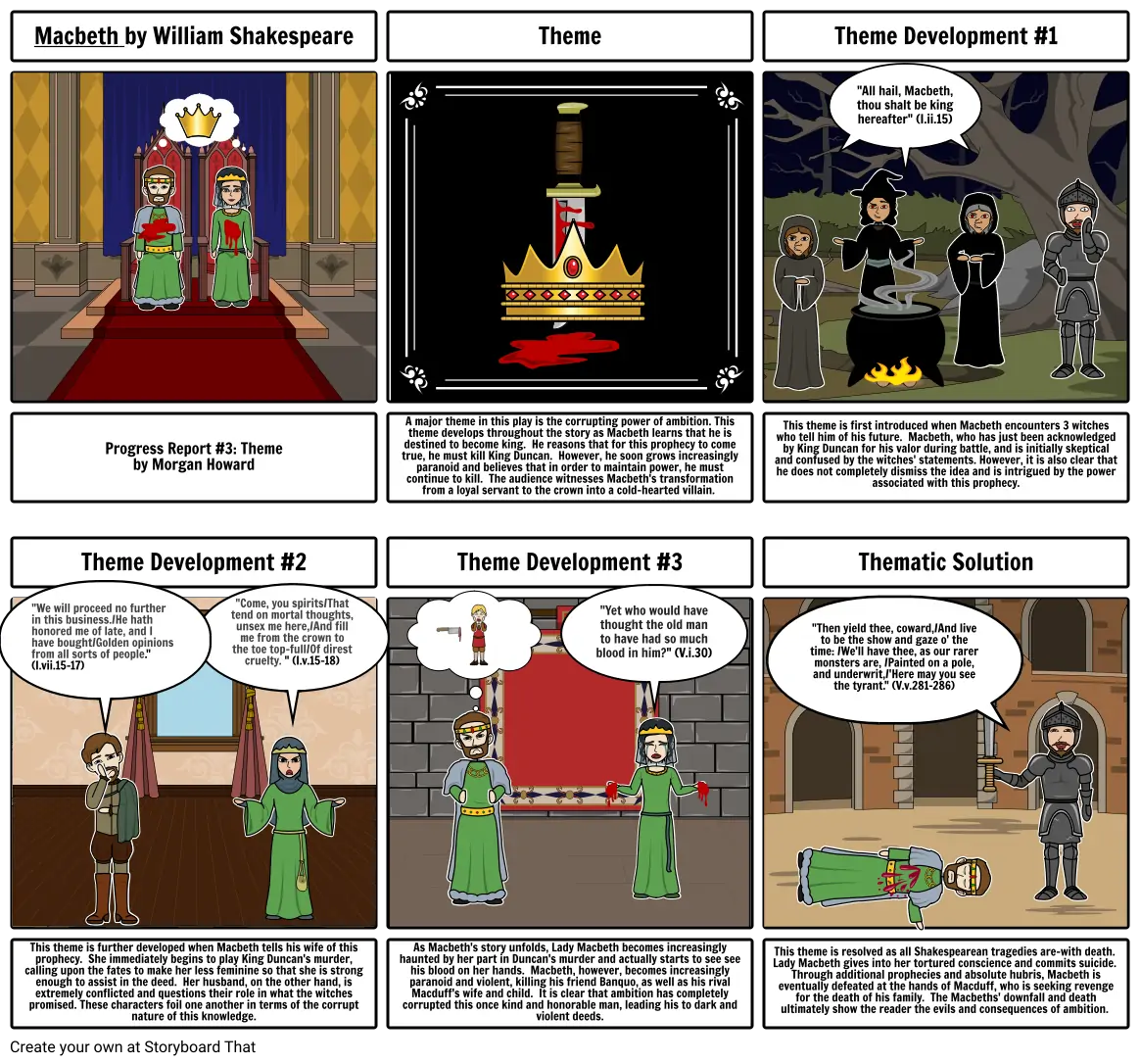Macbeth-Theme

Storyboard Text
- Macbeth by William Shakespeare
-
- Theme
- Theme Development #1
- "All hail, Macbeth, thou shalt be king hereafter" (I.ii.15)
- "We will proceed no further in this business./He hath honored me of late, and I have bought/Golden opinions from all sorts of people." (I.vii.15-17)
- Progress Report #3: Theme by Morgan Howard
- Theme Development #2
- "Come, you spirits/That tend on mortal thoughts, unsex me here,/And fill me from the crown to the toe top-full/Of direst cruelty. " (I.v.15-18)
- A major theme in this play is the corrupting power of ambition. This theme develops throughout the story as Macbeth learns that he is destined to become king. He reasons that for this prophecy to come true, he must kill King Duncan. However, he soon grows increasingly paranoid and believes that in order to maintain power, he must continue to kill. The audience witnesses Macbeth's transformation from a loyal servant to the crown into a cold-hearted villain.
- Theme Development #3
-
- "Yet who would have thought the old man to have had so much blood in him?" (V.i.30)
- This theme is first introduced when Macbeth encounters 3 witches who tell him of his future. Macbeth, who has just been acknowledged by King Duncan for his valor during battle, and is initially skeptical and confused by the witches' statements. However, it is also clear that he does not completely dismiss the idea and is intrigued by the power associated with this prophecy.
- Thematic Solution
- "Then yield thee, coward,/And live to be the show and gaze o' the time: /We'll have thee, as our rarer monsters are, /Painted on a pole, and underwrit,/'Here may you see the tyrant." (V.v.281-286)
- This theme is further developed when Macbeth tells his wife of this prophecy. She immediately begins to play King Duncan's murder, calling upon the fates to make her less feminine so that she is strong enough to assist in the deed. Her husband, on the other hand, is extremely conflicted and questions their role in what the witches promised. These characters foil one another in terms of the corrupt nature of this knowledge.
- As Macbeth's story unfolds, Lady Macbeth becomes increasingly haunted by her part in Duncan's murder and actually starts to see see his blood on her hands. Macbeth, however, becomes increasingly paranoid and violent, killing his friend Banquo, as well as his rival Macduff's wife and child. It is clear that ambition has completely corrupted this once kind and honorable man, leading his to dark and violent deeds.
- This theme is resolved as all Shakespearean tragedies are-with death. Lady Macbeth gives into her tortured conscience and commits suicide. Through additional prophecies and absolute hubris, Macbeth is eventually defeated at the hands of Macduff, who is seeking revenge for the death of his family. The Macbeths' downfall and death ultimately show the reader the evils and consequences of ambition.
Over 30 Million Storyboards Created
No Downloads, No Credit Card, and No Login Needed to Try!
